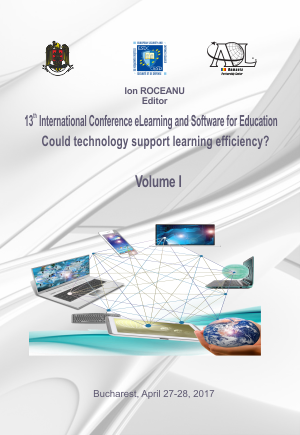BLOGGING, VLOGGING - FROM ENTERTAINMENT TO EDUCATION
BLOGGING, VLOGGING - FROM ENTERTAINMENT TO EDUCATION
Author(s): Monica Condruz BacescuSubject(s): Social Sciences, Education
Published by: Carol I National Defence University Publishing House
Keywords: blogging; vlogging; education; internet; online resources; video platforms.
Summary/Abstract: The paper focuses on blogging and vlogging, two concepts that can be used in modern education. Today, both in higher education and school education, is acknowledged the role of the Internet in teaching, learning and assessment. In many cases, the Web has become an indispensable tool for all educational actors, both in the classroom and outside it. Modern technologies offer a wide range of applications, they represent the foundation for a new system of providing education and building knowledge. More and more voices say that we are moving towards a revolution in education; the current role of the teacher, that of knowledge conveyor, loses much of its poignancy. Learning is oriented to person, allowing those who study to choose content and tools appropriate to their interests, needs and skill levels. The first part of the paper deals with the concept of blogging and gives also examples of educational blogs. The blog gives you the freedom to add any kind of content. The choice depends only on the imagination of each user. Blogs have become a well-established form of expression in the online environment. The second part presents the concept of vlogging and examples of vlogs. When we say online video content, the first and most famous notion that occurs naturally is vlogging (a form of blogging, but using video as a form of content). Through it, people of all ages and from all over the world make their voice heard and build impressive communities around online video content. Vlogging began to enjoy a growing global popularity, especially among young people. Whether at the beginning it was rather a form of entertainment, recently, internationally, it can be noticed a transition to education. School, in turn, make a gradual transition to video learning (e-learning), to alternative classrooms, to courses held on Skype, foreign language classes taken online or digital tests. The conclusion of the paper is that blogging / vlogging in education has advantages, disadvantages but also offers opportunities for improving the quality of education. The use of new technologies in education has shifted the focus from accumulation of knowledge to build practical skills necessary to achieve the purpose of learning.
Journal: Conference proceedings of »eLearning and Software for Education« (eLSE)
- Issue Year: 13/2017
- Issue No: 01
- Page Range: 369-376
- Page Count: 8
- Language: English

